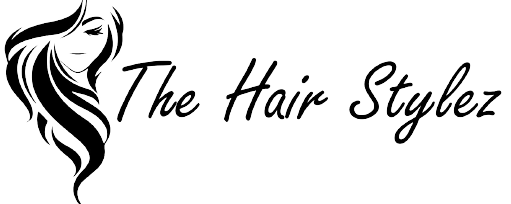Dry hair can be a frustrating problem, leaving you with straw-like strands, frizz, and a lack of shine. But fear not! Numerous dry hair treatments are available to restore moisture, enhance manageability, and restore your hair’s natural vibrancy. This comprehensive guide delves into dry hair treatments, exploring salon-grade options and DIY solutions you can try at home.
Understanding Dry Hair: Causes and Symptoms
Before diving into treatments, it’s crucial to understand what causes dry hair. Several factors contribute to this issue, including:
- Environmental factors: Sun exposure, dry climates, and harsh winds can strip hair of moisture.
- Chemical treatments: Bleaching, coloring, perming, and relaxing treatments can damage the hair cuticle, leading to dryness.
- Heat styling: Excessive use of blow dryers, straighteners, and curling irons can dehydrate hair.
- Improper hair care routine: Washing hair too frequently with harsh shampoos or skipping conditioner can deplete natural oils.
- Dietary deficiencies: Lack of essential vitamins and minerals like biotin, iron, and omega-3 fatty acids can impact hair health.
Symptoms of Dry Hair:
Here are some telltale signs of dry hair:
- Brittle strands are prone to breakage
- Fizziness and lack of manageability
- Dullness and lack of shine
- Split ends
- Scalp dryness or irritation
Effective Salon Treatments for Dry Hair:
Salons offer a variety of professional dry hair treatments that deliver intense hydration and rejuvenation. Here are some popular options:
Deep Conditioning Treatments:
Deep conditioners are concentrated formulas that penetrate deeper into the hair shaft than regular conditioners. They are ideal for providing deep moisture and repairing damage. Look for treatments with ingredients like butter, coconut oil, and hyaluronic acid.
Keratin Treatments:
Keratin treatments coat the hair with a layer of keratin, a protein naturally found in hair. This creates a smoother, shinier appearance and reduces frizz for several months. However, some keratin treatments contain formaldehyde, a potential irritant. Discuss this with your stylist to choose a formaldehyde-free option.
Hair Masks:
Hair masks are similar to deep conditioners but offer even more intensive nourishment. They often come in single-use packets and contain rich oils, butter, and emollients. The mask is left on for a specified time and rinsed out for intensely hydrated and revitalized hair.
Hot Oil Treatments:
Hot oil treatments involve massaging warmed oil into the scalp and hair. This helps stimulate circulation, improve scalp health, and infuse hair with moisture. Popular oils used include argon oil, coconut oil, and jojoba oil.
Scalp Treatments:
A dry scalp can contribute to dry hair. Scalp treatments, including scalp massages, clarifying shampoos, and exfoliating scrubs, can help address this by removing buildup, exfoliating dead skin cells, and promoting healthy scalp circulation.
DIY Dry Hair Treatments at Home:
Need the budget for a salon visit? No problem! Here are some effective dry hair treatments you can do at home using natural ingredients:
Hair Oils:
Natural oils like coconut, argon, jojoba, and olive oil are excellent emollients that lock in moisture and add shine. Warm a small amount of oil in your hands and apply it to the mid-lengths and ends of damp hair. Leave it on for 30 minutes to an hour, then shampoo and condition it as usual.
DIY Hair Masks:
Whip up your hair mask with kitchen ingredients! Combine ingredients like avocado, honey, yogurt, and olive oil to create a nourishing mask for dry hair. Apply it to your hair, cover it with a shower cap, and leave it on for 30 minutes before rinsing.
Apple Cider Vinegar Rinse:
Apple cider vinegar (ACV) helps balance scalp pH and adds shine to hair. Dilute one tablespoon of ACV with 1 cup of water. After shampooing, rinse your hair with the ACV mixture and follow with a cool rinse.
Limit Heat Styling:
Air drying is the gentlest way to treat dry hair. If you must use heat styling tools, apply a heat protectant spray beforehand and use the lowest heat setting possible.
Deep Condition Regularly:
Treat your hair to a deep conditioning treatment at least once a week. This will help replenish moisture and prevent further dryness.
Lifestyle Changes for Healthy Hair
Diet and Hydration:
What you eat affects your hair health just as much as what you put on it. Here’s how your diet can contribute to healthy, hydrated hair:
- Drink plenty of water: Aim for eight glasses daily to stay hydrated from the inside out.
- Eat a balanced diet: Include plenty of fruits, vegetables, and whole grains. These foods are rich in vitamins, minerals, and antioxidants that nourish hair follicles and promote growth.
- Focus on healthy fats: Omega-3 fatty acids in fatty fish, nuts, and seeds are essential for maintaining healthy hair and scalp.
- Consider biotin supplements: Biotin is a B vitamin that supports healthy hair growth. Consult your doctor before taking any supplements.
Gentle Hair Care Routine:
- Wash hair less frequently: Daily hair washing can strip away natural oils. Aim to wash your hair 2-3 times weekly or as needed.
- Use a gentle shampoo and conditioner: Choose sulfate-free and paraben-free shampoos that cleanse without being harsh. Opt for a moisturizing conditioner suitable for your hair type.
- Avoid hot water: Hot water can damage hair. Use lukewarm water when washing your hair, and rinse with cool water to seal the hair cuticle and add shine.
- Gently towel dry: Avoid rubbing your hair with a towel after washing. Instead, gently pat or squeeze out excess water with a microfiber towel.
FAQs:
Q: What are some quick fixes for dry hair?
A quick fix for dry hair is to apply a leave-in conditioner or hair oil to damp hair after showering. This will help lock in moisture and add shine. You can also try a DIY hair mask with ingredients like avocado or honey for a quick boost of hydration.
Q: How long does it take for dry hair treatments to work?
The effectiveness and duration of dry hair treatments vary depending on the severity of the dryness and the type of treatment used. Salon treatments like keratin may offer immediate results that last several months, while home remedies may take more consistent use to see noticeable improvement.
Q: Can dry hair be permanently cured?
Dry hair can be managed effectively, but it’s not necessarily “curable,” as some factors, like genetics and environmental conditions, can contribute to it. However, with a consistent hair care routine that incorporates hydration, gentle cleansing, and heat protection, you can achieve healthy, manageable hair.
Benefits of Common Dry Hair Treatments
| Treatment | Benefits |
| Deep Condoning | Intense moisture replenishment and damage repair |
| Keratin Treatments | Smoothness, frizz reduction, and shine |
| Hair Mask | Deep nourishment, revitalization |
| Hot Oil Treatments | Improved scalp health, moisture infusion |
| Scalp Treatments | Reduced dryness, balanced scalp pH |
| Hair Oils | Moisture retention, added shine |
| Apple Cider Viner Rinse | Balanced scalp pH, increased shine |
Conclusion:
Dry hair doesn’t have to be a permanent struggle. You can achieve healthy, hydrated, and manageable locks by understanding the causes and implementing the right dry hair treatments.
Whether you choose salon-grade solutions or DIY remedies, a consistent hair care routine and healthy lifestyle habits form the foundation for beautiful hair. Feel free to experiment and find what works best for your hair’s type and unique needs. Remember, a little TLC goes a long way toward achieving healthy, happy hair!

